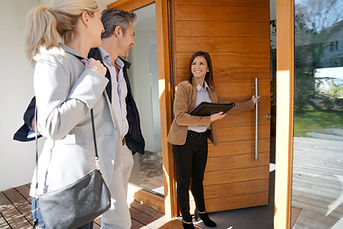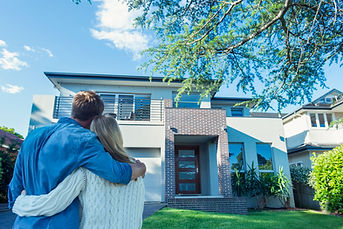Selling
How a REALTOR® Helps You Understand the Value of Your Home
If you're thinking about selling your home, one of the first questions you'll likely ask is, "What is my home worth?" While online estimates can offer a quick snapshot, they often miss key details that make your home unique.
More Than Just a Number
Determining your home's value isn't just about square footage or bedroom count. A REALTOR® considers:
-
Recent comparable sales (similar homes that have sold nearby)
-
Current market competition (similar homes that are actively for sale nearby)
-
Current market conditions (amount of homes for sale, average days on market & buyer demand)
-
Your home’s condition and recent updates
-
Location-specific factors, like schools, proximity to shopping and support services as well as neighborhood appeal
A customized market analysis gives you a realistic picture of your home's value—not a computer-generated guess.
Why It Matters
Determining the value of your home correctly from the start is one of the most important decisions you’ll make. If you set your price too high, your home could sit on the market and lose momentum. If you set your price too low, you may leave money on the table. A REALTOR® helps you make a decision that strikes the right balance so you can attract serious buyers and get solid offers.
Personalized Insight
As a local REALTOR® and Seniors Real Estate Specialist®, I bring more than just market knowledge—I bring experience working with older adults who want to make well-informed decisions. I take the time to understand your goals and timeline, and I provide honest feedback to help you move forward with confidence.
Want to know what your home is really worth in today’s market?
Contact me for a personalized market analysis and a clear conversation about your next steps.
Getting Your Home Ready to Sell: What Really Matters
Selling your home involves more than just a "For Sale" sign. A well-prepared home not only shows better—it can sell faster and for a higher price. If you're considering putting your home on the market, here's a few tips to help you get started.
General Prep Tips
Buyers want to see a space that feels clean, open, and move-in ready. Start with the basics:
-
Deep clean the entire home, including floors, windows, and surfaces
-
Open blinds and turn on lights to make rooms feel bright and welcoming
-
Clear off countertops, remove excess furniture, and pack away personal photos
-
Tidy closets and hide everyday items like jackets and shoes
Focus on First Impressions
The outside of your home is the first thing buyers see. This is an important part of the preparation and should not be overlooked! A few small updates can make a big difference:
-
Clean up the yard, mow the grass, and trim back overgrown trees or bushes
-
Remove visible clutter, toys, and trash bins
-
Add fresh mulch or a pot of seasonal flowers by the front door
-
Consider power washing or painting the exterior if needed, especially the front porch and drive areas
Kitchens and Bathrooms Matter
Keep them clean, clear, and simple:
-
Clear off all countertops and put away small appliances
-
Remove magnets, personal photos, and dish racks
-
Put away soaps, toothbrushes, and shower products
-
Hang fresh towels and clean mirrors
Living Areas and Bedrooms
You want each room to feel calm, open, and ready to live in:
-
Make beds neatly and fluff pillows
-
Remove visible cords, remotes, and excess decor
-
Straighten furniture to create open walkways
-
Clear off nightstands, end tables, and shelves
Showing Day Checklist
When it’s time for buyers to walk through your home:
-
Turn on lights and open window coverings
-
Keep pets secured and out of the way
-
Play soft background music if possible
-
Plan to be out during showings so buyers can look around freely
Bonus Tips for Sellers
Getting your home physically ready is essential, but don’t overlook a few key strategic steps that can make a real difference in your selling experience.
-
Partner with a knowledgeable local agent who understands your neighborhood and current market trends. National headlines don’t always reflect what’s happening in your specific area.
-
Review recent comparable sales and clarify your personal selling goals. Are you focused on timeline, maximizing value, or minimizing stress? Your strategy should align with your priorities.
-
If you're listing in the winter, plan ahead with seasonal photos. Ask your agent to capture your home during spring or summer to highlight curb appeal when the landscape is at its best.
-
Think through your next move. Whether you're downsizing, relocating, or transitioning to senior living, having a plan in place is crucial. Knowing where you're going next is the first step you should take before selling your home.
-
Hire your agent early in the process. A proactive approach allows your agent to provide guidance from the very beginning—not just at listing time.
Want more detailed guidance or a complete checklist?
I offer one-on-one coaching, in-person walk-throughs, and practical advice based on your goals to help you confidently prepare your home for a successful sale.
Should I Sell Before Moving to a Retirement Community?
If it’s financially possible, moving into your new retirement community before selling your home is often the least stressful and most efficient way to manage the transition.
Living in your home while it's on the market can quickly become exhausting. Showings often happen with little notice, and keeping your home “show ready” at all times adds pressure. There are also practical concerns—like rearranged furniture for staging, keeping valuables or medications secure, and navigating a space that no longer feels quite like home.
By moving first, you can focus solely on what you’re taking with you, which simplifies both the emotional and logistical aspects of downsizing. Everything that’s left behind—whether to be sold, donated, or passed along to family—can be handled more efficiently by your real estate and move management professionals. It also allows your Realtor to prepare and present your home in its best light, free from the day-to-day disruptions of living in it. In many cases, this can even help your home sell faster and for a better price.
In short, moving first gives you control, peace of mind, and the ability to transition at your own pace—without juggling two major life events at once.
.jpg)



